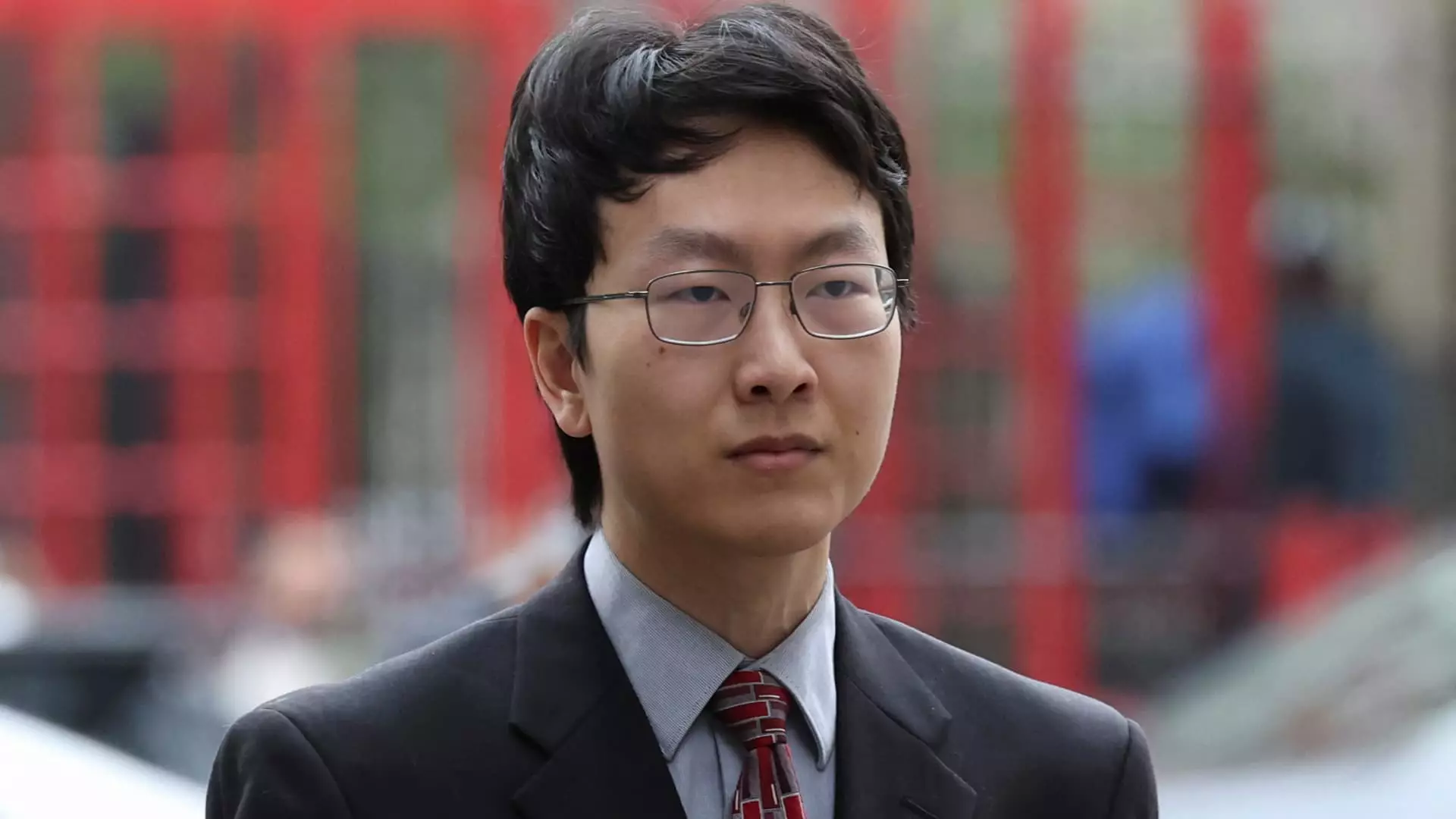The downfall of FTX, once a titan in the cryptocurrency exchange space, has sent shockwaves through both the financial and tech communities. Central to the unraveling of this giant were decisions made by its leadership, notably by its co-founder Gary Wang. Recently, Wang faced justice for his involvement in a sprawling fraud scheme that contributed to FTX’s collapse. His sentencing not only underscores the necessity for accountability in the financial sector but also raises questions about the responsibilities of corporate executives in an industry often perceived as the Wild West of finance.
FTX’s rapid descent from a billion-dollar enterprise to bankruptcy was a harrowing tale of mismanagement and deceit. As the company fell apart, numerous ex-employees, including Gary Wang, found themselves embroiled in legal battles. Wang’s recent sentencing marked the conclusion of the legal consequences faced by key figures involved in the scandal. He was sentenced to time served and three years of supervised release for four counts of fraud, a fate that mirrors previous penalties handed to other FTX executives, emphasizing a collective retreat from ethical standards within the organization.
A significant aspect of Wang’s case was his cooperation with federal authorities. Unlike others who faced harsher sentences, his assistance in the government’s case against Sam Bankman-Fried seemingly cushioned his legal repercussions. This raises pertinent questions about the nature of justice in white-collar crime. Wang portrayed a willingness to aid the government, yet this cooperation serves as a reflection of a troubling trend: the expectation that some individuals can negotiate reduced punishment through collaboration. While such agreements are not uncommon in the justice system, they illuminate disparities in how accountability is applied among varying levels of corporate leadership.
Wang’s statements in court revealed a personal struggle with guilt and the desire for redemption. His public apology to the victims of FTX reflects a human side to the legal proceedings—revealing the emotional and moral dilemmas faced by individuals within corporate hierarchies. The weight of his transgressions loomed large, especially as he acknowledged the pain inflicted on investors. His remarks about the easy path taken out of cowardice resonate in a broader discourse about corporate ethics and the individual accountability expected from executives who wield considerable power over financial systems.
Interestingly, the judge and prosecutors recognized Wang not merely as a perpetrator but as a potential asset in combating future corporate fraud. His technical expertise has begun to aid investigations into illegal practices in financial markets, marking an unexpected turn in his narrative. The fact that Wang has been developing tools for fraud detection in both stocks and cryptocurrencies highlights an intriguing aspect of the modern justice system: the belief that individuals implicated in wrongdoing can also contribute positively to the ecosystem they have harmed.
The case of Gary Wang encompasses themes that extend beyond individual accountability. It invites a critical examination of corporate governance, particularly within the rapidly evolving cryptocurrency industry. With regulatory frameworks striving to catch up to technological advancements, the responsibility of leaders to uphold ethical standards has never been more pivotal. In the aftermath of the FTX debacle, it becomes imperative for both founders and executive teams across the tech landscape to prioritize transparency and ethical considerations in their decision-making processes.
The sentencing of Gary Wang is not merely a conclusion to a legal saga; it serves as a cautionary tale. As the cryptocurrency industry continues to mature, the need for robust ethical frameworks and individual accountability grows exponentially. Wang’s journey illustrates the importance of recognizing the complex interplay between ambition, ethics, and legal ramifications. Ultimately, the lessons gleaned from Wang’s case and others like it must inform the future of corporate governance, ensuring that the sins of the past do not repeat themselves in the evolving landscape of financial technology.

